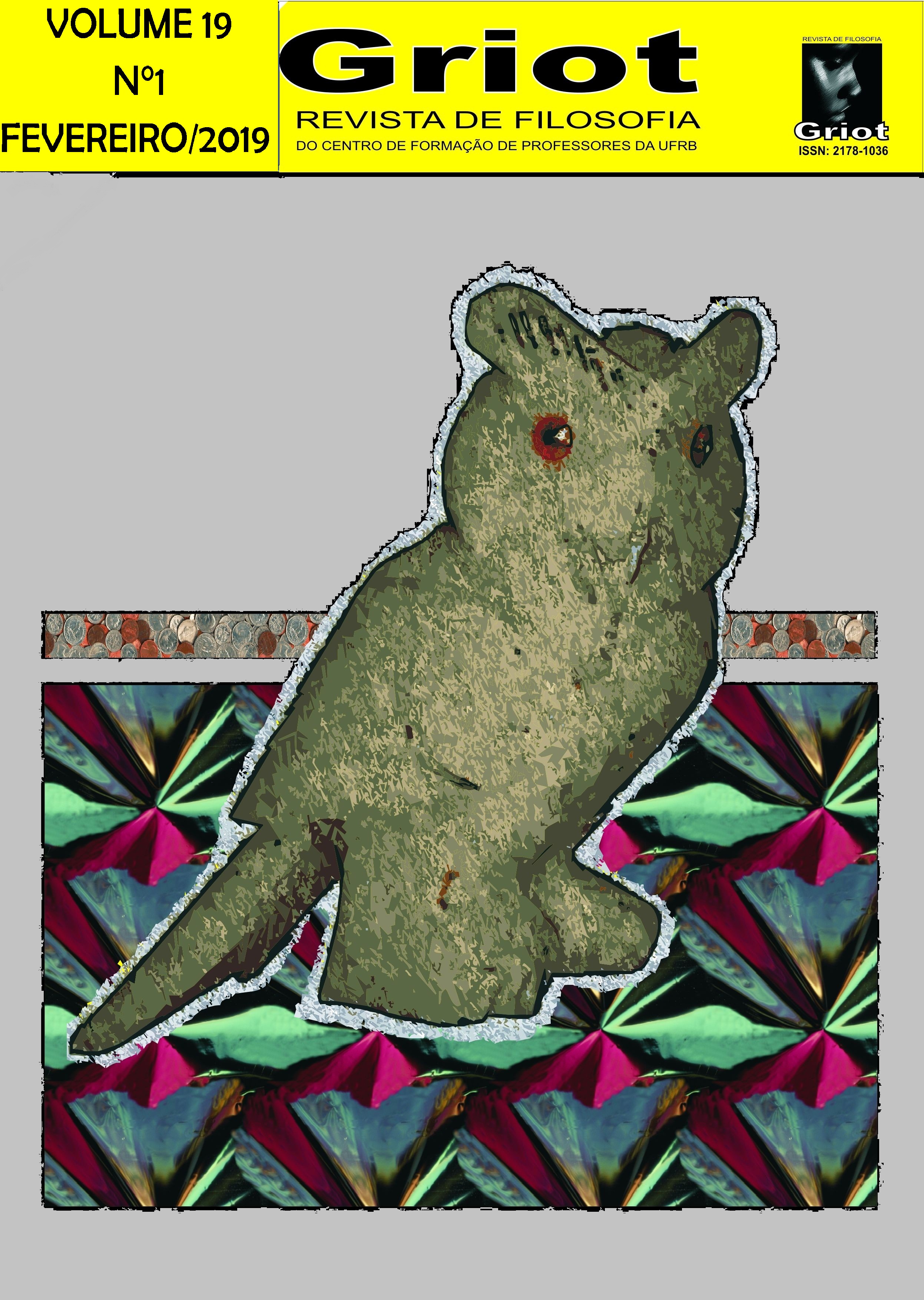A poet’s calling or on tragic as a task of Hölderlin’s poetry
DOI:
https://doi.org/10.31977/grirfi.v19i1.1132Keywords:
Hölderlin; Tragic; Oedipus; Poetry.Abstract
This paper examines how the question of the Tragic is defined according to Hölderlin, an important German poet from the XVIII century. In 1804, Hölderlin translates and comments the plays Oedipus the King and Antigone, by Sophocles. This paper focuses on the investigation about the Tragic undertaken by Hölderlin in the third part of his Remarks on Oedipus; in this part, some elements which are singular to his thought come up, such as the Caesura, the Mutual Unfaithfulness and the Categorical Reversal. These elements allowed Hölderlin to address the question of the Tragic from an entirely new perspective for his time and provided the emergence of important further debates both in Literature and Philosophy. There are two main questions which guide the argumentation of this paper: the first one refers to Hölderlin’s singular conception of the paradoxes that commonly constitute the Tragic, such as the one between the human and the divine; and the second one, the analysis of the poetic task of Modernity as a possible task to every single poem.
Downloads
References
ALLEMAN, B. Hölderlin et Heidegger. Recherche de la relation entre poésie e pensée. Trad. François Fédier. Paris: Presses Universitaires de France, 1959.
ANAXIMANDRO, PARMÊNIDES, HERÁCLITO. Os Pensadores Originários. Petrópolis: Vozes, 1991.
ARISTÓTELES, Poética. Capítulo XI. São Paulo: Abril Cultural. 1973.
BEAUFRET, J. Hölderlin e Sófocles. Rio de Janeiro: Jorge Zahar, 2008.
CAMPOS, H. A palavra vermelha de Hoelderlin. In: A arte no horizonte do provável. São Paulo: Perspectiva, 1977.
CÍCERO, A. O destino do homem. In: NOVAES, Adauto (org.). Os poetas que pensaram o mundo. São Paulo: Companhia das Letras, 2005.
DASTUR, F. Hölderlin: Tragédia e Modernidade. In: HÖLDERLIN, F. Reflexões. Trad. Márcia de Sá Cavalcante e Antonio Abranches. Rio de Janeiro: Relume-Dumará, 1994.
HEIDEGGER. Approche de Hölderlin. Paris: Gallimard, 1951.
HÖLDERLIN, F. Escritos filosóficos de Hölderlin. In: ROSENFIELD, K. (org.) Filosofia & Literatura: o trágico. Rio de Janeiro: Jorge Zahar, 2001.
HÖLDERLIN, F. Elegias. Trad. Maria Teresa Dias Furtado. Lisboa: Assírio e Alvim, 1992.
HÖLDERLIN, F. Hölderlin e outros estudos. In: QUINTELA, Paulo. Obras Completas de Paulo Quintela . Vols II, III e IV. Lisboa: Calouste Guilbekian. 1999
HÖLDERLIN, F. Oeuvres. Bibliotèque de la Plêiade. Paris: Gallimard, 2004.
HÖLDERLIN, F. Reflexões. Trad. Márcia de Sá Cavalcante e Antonio Abranches. Rio de Janeiro: Relume-Dumará, 1994.
HÖLDERLIN, F. Observações sobre Édipo e Antígona. In: ROSENFIELD, K. Antígona — de Sófocles a Hölderlin. Porto Alegre: L&PM. 2000.
LACOUE-LABARTHE. P. Métaphrasis. Paris: Presses Universitaires de France. 1998.
MACHADO, R. Hölderlin e o afastamento do divino. In: O nascimento do trágico: de Schiller a Nietzsche. Rio de Janeiro: Jorge Zahar, 2006.
MACHADO, R; SÜSSKIND, Tradução e notas. In: HÖLDERLIN, F. Observações sobre Édipo e Observações sobre Antígona. Rio de Janeiro: Jorge Zahar, 2008.
NAVILLE; FÉDIER. IN: HÖLDERLIN, Friedrich. Oeuvres. Bibliotèque de la Plêiade. Paris: Gallimard, 2004.
OTTO, Rudolf. O sagrado: os aspectos irracionais na noção do divino e sua relação com o racional. Trad. Walter O. Schlupp. São Leopoldo: Sinodal/EST; Petrópolis: Vozes, 2007.
ROSENFIELD, Kathrin. Antígona — de Sófocles a Hölderlin. Porto Alegre: L&PM. 2000.
ROSENFIELD, Kathrin. O estatuto teórico do “sentido estético” (a propósito de Hölderlin). In: Revista Analytica. São Paulo, vol 3, n.2, pps 157 – 195, 1998.
SZONDI, P. Ensaios sobre o trágico. Trad. Pedro Süssekind. Rio de Janeiro: Zahar Editores, 2004.
Downloads
Published
How to Cite
Issue
Section
License
The authors who publish in Griot: Revista de Filosofia maintain the copyright and grant the magazine the right of first publication, with the work simultaneously licensed under the Creative Commons Attribution 4.0 International License, allowing sharing and adaptation, even for commercial purposes, with due recognition of authorship and initial publication in this journal. Read more...









































































